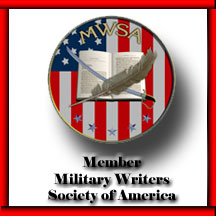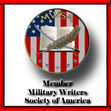|
"Look, Dad, balloons!" I said, holding one up to show him. It was a translucent white, and I started to blow it up. Before as I raised it to my lips, my father flew across the room to slap it away in one lightning-quick move. "Go wash your hands," he said. "Use soap and water and wash good." Mystified, I found the bathroom. There was no soap so I scrubbed with kitchen cleanser, then dried my hands with toilet paper. By the time I returned to the living room, Dad had emptied all the credenza drawers, including the one where I found what seemed to be dozens of wrinkled balloons, into the trash. "I'll finish up here, you go in the kitchen," he said. "Throw the food away, but put anything that's metal in a box." The elderly man whose apartment we were emptying had died suddenly a few days before; after his children removed the valuables, they hired my father to haul everything else away. I was almost eleven, and worked with Dad every Saturday on the truck. Earlier that year he had lost his sheet-metal job. For a few years after the war he had built neon signs, bending huge sheets of galvanized steel into stylized shapes, then drilling and punching holes for mounting brackets and electrical connections. After recovering from double pneumonia, Dad gave up his side jobs delivering flowers and driving a taxi. But he couldn't make enough money at the factory, so on weekends and holidays he rented a wagon or truck and went around Chicago buying and selling junk. I don't think Dad was quite ready to give up a steady paycheck, but after Mom returned from electroshock therapy she slept almost all the time; it was all that she could do to take care of Ila, the baby. So every morning Dad had to get me and my two school-age siblings off to school. Sometimes he was late to work. After the sign factory fired him, Dad had asked Uncle Harold, Aunt Mollie's husband, to find him a swing-shift job where he could get some overtime. Harold was a union official; he told Dad that even for a brother-in-law that kind of help would cost a month's wages. Harold, who liked the horses and knew his way around a bottle, said he'd loan Dad the money, but he wanted interest. Ten percent a month. Dad didn't much like Uncle Harold, whom he called a drunk to his face, so he decided that if he had to borrow a lot of money he might as well buy an old truck and go into the junk business full time. Starting out, he took anything that would bring a little money. When we cleaned out dead people's rooms, most things went to the dump, but usually we found items that could be sold to junkyards or second-hand stores — clothes, household items and small pieces of furniture. Dad handed me a box heavy with dishes. "Put this on the side," he said. "Hide it under the tarpaulin." As always, he pronounced it, "tar pole eey-un." Dad read two newspapers a day and was far from ignorant, but he dropped out of high school and much of his vocabulary were words that he’d never heard spoken. When the truck was full, Dad found an old broom and I held a piece of cardboard that substituted for a dust pan. Squatting on the floor I saw something shiny in the back of the hole left by a credenza drawer. I stuck my arm in and came out with a handful of foil squares. Before Dad could object, I tore one open. "I've never seen balloons like these," I said. "Those are called condominiums," said my father. "When you're old enough, I'll explain how they're used." That day never came. Within a few days I had asked an older schoolmate about "condominiums," and after he stopped giggling, he enlightened me on the correct pronunciation as well as the product's purpose. He was fascinated with my account of how I had stumbled on a cache of expended units, and especially curious about the fact that they had belonged to one so ancient. All this came flooding back into memory fifty years later. After spending an out-of-town night on a friend's living room couch, I awoke in a strange position, with something pressing on a tender spot in my chest. Cautiously exploring this with my fingers, my unease grew as I felt a large, irregular lump where none should be. It was three days before I could see my doctor, and in that time I decided that the lump was a giant tumor. I expected to go directly from my physician's office for X-rays and CAT scans, and thence to surgery. Unless it was too late. Surely, I thought, something that big had metastasized. Probably I had only a few weeks to live. There was much to do. All the things I had put off, always meaning to get around to, now loomed in my thoughts. I began to put my affairs in order, starting with an update of my will. I had creditors to pay. To spare my daughter, I arranged for a burial plot and a funeral service. And then, suddenly, I recalled the spooky coolness I had felt exploring dead men's rooms, leafing through closets and private papers, tossing drawers full of worn clothes into paper bags, meanwhile wondering what sort of person had worn them. It was curious merely visiting a place where a real person had so recently lived. I remembered what I had found in the credenza, and how I shared the story with my friends, and began to worry not about dying but what would happen afterward. What would my daughter find in my rooms? What secrets would she uncover among my papers? How would the things that she found among my belongings change the way in which she would regard me thereafter? No wonder, I thought, that dead men's families hired strangers to empty the deceased's apartment. At the doctor's office I took my physician's fingers and placed it on the tumor. I started to say, "Give it to me straight, Doc," but he laughed and showed me a medical book illustration, pointing out the triangular piece of cartilage protecting the sternum. Everyone has one of those, he explained. I would certainly die, he said, but unless I got hit by a truck, probably no time soon. I returned home feeling that life was wonderful. Tomorrow, I decided, I would clean out my credenza. Copyright 2002 © Marvin J. Wolf
0 Comments
|
FROM Marvin J. Wolf
On this page are true stories, magazine articles, excerpts from books and unpublished works, short fiction, and photographs, each offering a glimpse of my life, work and times. Your comments welcome. © Marvin J. Wolf. All rights reserved. Archives
October 2023
Categories
All
|
|
|
Member, Military Writers of America
|
Website © 2016 Marvin J. Wolf. All rights reserved on website design, images and text. ꟾ Updated regularly.
Design by Andesign. |
Professional Reader, NetGalley
|

 RSS Feed
RSS Feed
